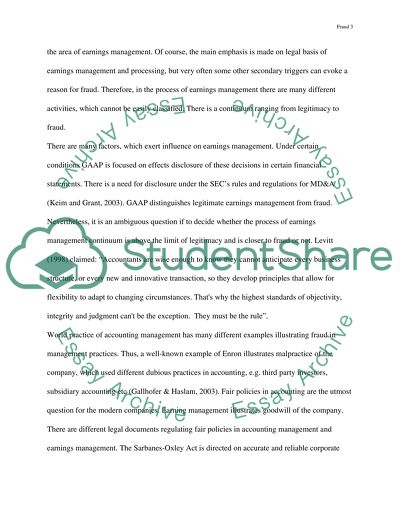Cite this document
(“Earnings Management: The Continuum from Legitimacy to Fraud Research Paper - 3”, n.d.)
Earnings Management: The Continuum from Legitimacy to Fraud Research Paper - 3. Retrieved from https://studentshare.org/finance-accounting/1459473-earnings-management-the-continuum-from-legitimacy
Earnings Management: The Continuum from Legitimacy to Fraud Research Paper - 3. Retrieved from https://studentshare.org/finance-accounting/1459473-earnings-management-the-continuum-from-legitimacy
(Earnings Management: The Continuum from Legitimacy to Fraud Research Paper - 3)
Earnings Management: The Continuum from Legitimacy to Fraud Research Paper - 3. https://studentshare.org/finance-accounting/1459473-earnings-management-the-continuum-from-legitimacy.
Earnings Management: The Continuum from Legitimacy to Fraud Research Paper - 3. https://studentshare.org/finance-accounting/1459473-earnings-management-the-continuum-from-legitimacy.
“Earnings Management: The Continuum from Legitimacy to Fraud Research Paper - 3”, n.d. https://studentshare.org/finance-accounting/1459473-earnings-management-the-continuum-from-legitimacy.


